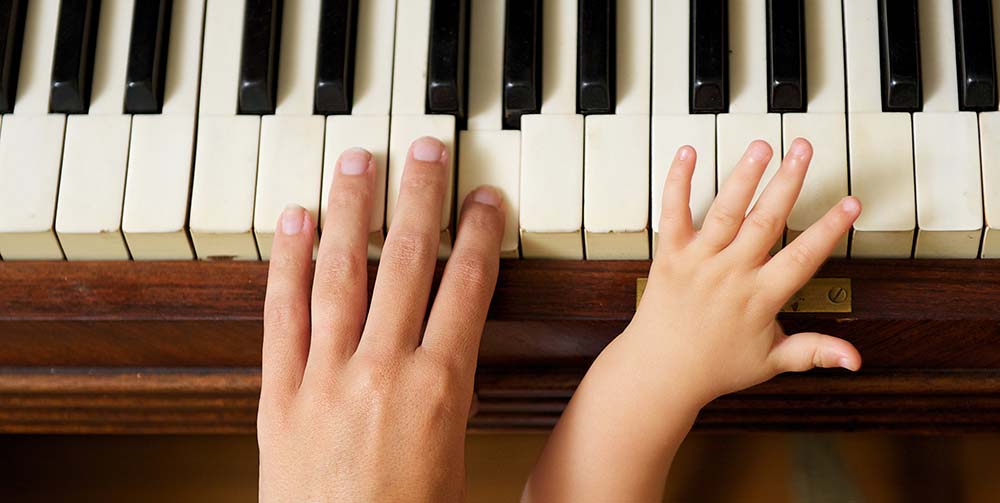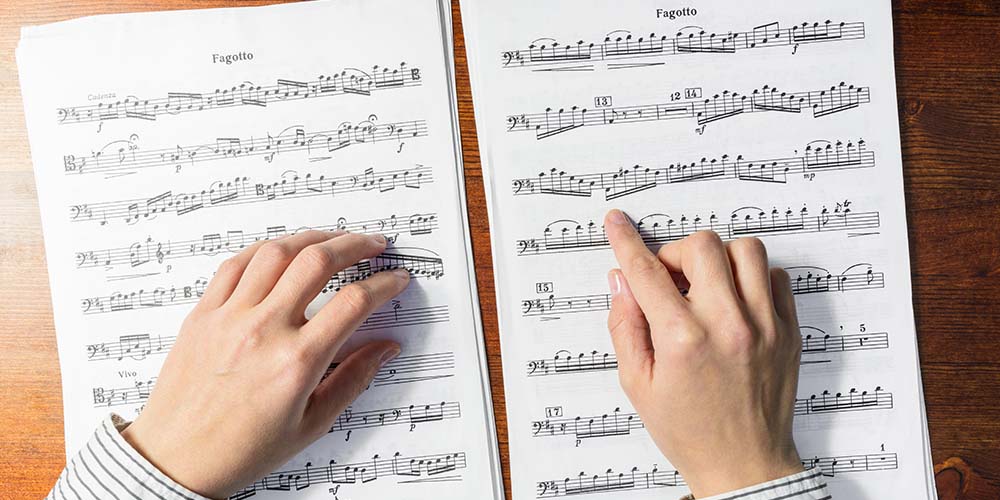How To Memorize Music
Memorizing phone numbers, street addresses and emails is something we do with relative ease. This same skill can be applied to learning music. There are various ways to memorize anything, including music. Here we provide the four basic types of music memorization learning along with tips to help you practice.
- motor (the fingers learn the pattern) - this is the one that sitting​ practicing for hours on end develop. Most of us can relate to this one.
- aural - being able to "hear" what the music should sound like in our​ head and then play it on the keyboard
- visual - remembering the way the music looks on the page
- analytical - understanding the theory, harmony and construction of the melodic phrases as recalling these patterns and building blocks​ during performance.
Try these tips for memorizing music:
Use proper fingers: Using the correct fingers is key to memorizing how to play a certain piece. If you are using different fingers each time then it will be difficult to remember. Writing down which fingers you are using in the score will help you especially if you are using different fingers than those that are recommended.
Watch Your Hands: Playing music while watching your hands can help you to recognize patterns on the keyboard. If you practice with your eyes closed and then suddenly in a performance you look down and see your hands, it can be a weird feeling. Don't let any surprises catch you off guard while performing.

Practice Slow: While playing fast is what we all want at times, practicing slower can actually be very beneficial. It helps to make sure you don’t skip over any note and makes you aware of how the fingers should move.
Memorize in small Sections: Trying to memorize an entire song in one shot would be nearly impossible. Instead break it up into smaller sections. Start with 4 measures at a time, even 2 measures at times. After you have done this try to double the amount from 4 to 8 and so on. This will help you to understand each section and memorize it quicker.
Use your Ears: When your playing slow it is easy to guess what the next note is. This is because we are ready to hear it. Using our ears we can hear what notes are correct and which aren’t. Practice using your ears to memorize music.
Listen to the song: Get a recording of the piece you're trying to memorize, and then listen to it all the time. Put it on your iPod and listen as you drive to work. And mentally play along as you do. Sometimes physically play along, either at a keyboard, or on a table silently. Sing it to yourself in the shower. Doing this, you're engraving the sound of the piece into your memory, so that you can remember the piece by listening to it from memory. And that's what you should be playing from.
Designate Starting Places: When trying to remember music, you don’t want to start in the middle of a section. You want to have certain spots that you can start over from. The beginning of the song. The end of a chorus.
Practice mentally away from Piano: This is something that we can do anywhere. If you are sitting on the couch watching TV try to play the song you are working on and see if you can play the song visually in your head. Try to visualize the keys and the keyboard.
Repeat!!!: Nothing works better than repetition. If you have forgotten a piece or a section remember that you can work on it the next day. Each time you will remember more and more.
Distractions: While memorizing our music can be great, nothing can prepare of for distractions during a performance. It is important to practice with the radio and tv on. Try playing very slow while the radio plays in the background. Have someone make distractions and see if you can still remember the music. Many things can happen that are out of our control while performing so it is important that we practice for them the best we can.
